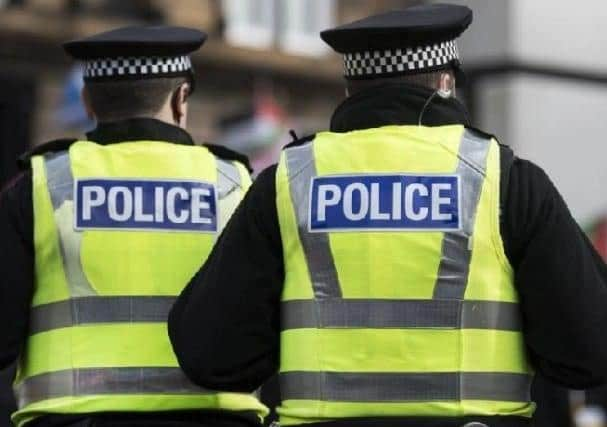Police Scotland: Increase number of ethnic minority officers is priority
It is an “absolute priority” to increase ethnic minority representation in Police Scotland, as just over 1% of officers are currently from minority backgrounds, MSPs have heard.
The force’s HR director said diversity in the leadership team is “not where we want it to be”, as she set out ways the force is trying to promote inclusion.


Advertisement
Hide AdAdvertisement
Hide AdHolyrood’s Equalities Committee on Thursday heard evidence from a number of public sector bodies on how they are improving employment practices.
Jude Helliker, Police Scotland’s director of people and development, said the force is designing a new testing system which aims to “level the playing field” for candidates applying to join.
The current test produced a 20% discrepancy between ethnic minority and white Scottish candidates, she said.
Responding to a question from committee member Mary Fee, Ms Helliker said: “I think we can always do better.
“We have been developing some leadership programmes but we recognise that the diversity in our leadership is not yet where we want it to be.”
She said there had been a “very significant” increase in female representation across the ranks since the formation of Police Scotland in 2014.
Ms Helliker added: “If you look at the total workforce, 2% of our police staff are from a BME (black and minority ethnic) background, and still just over 1% of police officers, and it is an absolute priority for us to increase that.
“Not just increase it at the recruit level but increase it at promoted ranks.
Advertisement
Hide AdAdvertisement
Hide Ad“The public will only recognise the legitimacy of policing when they see themselves in that population.”
She said Police Scotland had run “introduction to policing” events which were specifically aimed at encouraging applicants from ethnic minority communities.
There was often “great enthusiasm” shown on the first day of these programmes, she said, but interest would then fade.
She continued: “Some of them will come along to the second day, which is a few weeks later, and we invite family and friends to come along.
“And it appears to be at that point that the interest levels start to wane, and I think that from some of the harder-to-reach communities, the issue of family endorsement in policing as an attractive career option is still one of the challenges that we’re facing.”
Committee member Alex Cole-Hamilton asked when Police Scotland next planned to conduct its staff wellbeing survey, as the last one had taken place in 2015.
Ms Helliker said the coronavirus pandemic had prevented a survey from taking place this year, but the next one is due to happen in the new year.
Reporting by PA
A message from the Editor:
Thank you for reading this story on our website. While I have your attention, I also have an important request to make of you.
With the coronavirus lockdown having a major impact on many of our advertisers - and consequently the revenue we receive - we are more reliant than ever on you taking out a digital subscription.
Subscribe to scotsman.com and enjoy unlimited access to Scottish news and information online and on our app. With a digital subscription, you can read more than 5 articles, see fewer ads, enjoy faster load times, and get access to exclusive newsletters and content. Visit https://www.scotsman.com/subscriptions now to sign up.
Our journalism costs money and we rely on advertising, print and digital revenues to help to support them. By supporting us, we are able to support you in providing trusted, fact-checked content for this website.